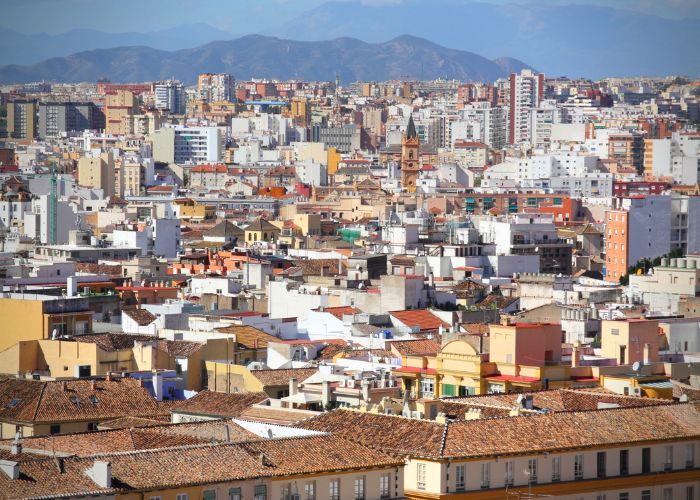Spain’s tourism revival has accelerated since last summer. During the winter, growth was already perpetuating, and by the end of 2023, pre-pandemic figures for arrivals and passenger spending look set to be reached again.
The boom in tourism has pushed up the supply of short-stay apartments in Spain by 23%. In Madrid alone, 4,500 homes were added between March 2022 and March 2023.
The flip side of euphoria
Yet this euphoria also has a downside. Firstly, due to the return of mass tourism to historic city centres and the risk of overcrowding. Rising property prices resulting from high demand are driving away local residents. Recent data from Exceltur, an association of 32 of Spain’s leading tourism sector companies, show a strong upturn in tourist properties. This includes full houses, single rooms and shared rooms. The return of national and international travellers after the pandemic and restrictions on rents have changed the supply.
These cities lead the way
As of 31 March 2023, there were 80,680 listings for tourist accommodation in the 20 cities with the highest number of overnight stays in Spain. This represents a 23% growth compared to the figures for the first quarter of 2022. Madrid saw the biggest increase in absolute terms, with 19,406 accommodations, 4,500 more in just 12 months and 24% of the total. This puts the capital at the top of the rankings, well ahead of Barcelona, with 14,531 accommodations, which saw growth of 11.8% and accounts for 18% of the total.
But the phenomenon of tourist accommodation growth has long since spread to the rest of Spain’s cities. The destinations where tourist homes grew the most in the first quarter of 2023 are Ibiza, with an annual increase of 47.7%, followed by Bilbao (45.6%) and Santander (45.5%). In fact, the following 12 cities are where the number of housing units for tourist use is above pre-pandemic levels;
- Málaga
- Las Palmas
- Palma de Mallorca
- Cordoba
- San Sebastian
- Bilbao
- Zaragoza
- Santander
- Gijón
- Murcia
- Ibiza
- Toledo
Málaga has the most notable growth, having added 1,457 holiday homes in 12 months. There are now 7,545, more than in Seville, and with this, Málaga is catching up fast with Valencia, the city currently in third place with 7,609 holiday homes.
Boundaries required
Óscar Perelli, managing director of Exceltur. which includes major hotel companies such as Meliá, NH, Iberostar and Piñero, thinks it is time to set limits. This can prevent situations like those that occur in districts like La Merced (Málaga) or Santa Cruz (Seville). There, the number of tourist accommodations exceeds the living space for owners or tenants.
Perelli argues that this uncontrolled growth has led to a sharp rise in house prices in the historic centres of these 20 cities. An accusation rejected by the Spanish Federation of Tourist Homes and Apartments (Fevitur). This federation represents 185,000 owners and managers of accommodation.
‘In Madrid, there are 1.5 million properties for rent and tourist properties barely make up 2%, while in Barcelona there are 800,000 and due to the moratorium it has been only 10,000 for several years. The Spanish average is less than 1.3% of total rentals, and in some cities it can reach 3% or 4%. ‘It does not seem reasonable to blame tourist housing as the cause of the rise in rents,’ says Miguel Ángel Sotillos, president of Fevitur. He considers the argument ‘misleading’ because it takes includes all tourst properties without taking into account their unequal distribution by neighbourhood, with disproportionate concentrations in the most central areas. ‘It not only causes price increases in the centre, but it also raises prices in the more affordable neighbourhoods on the outskirts. Because that is where residents displaced from the most expensive neighbourhoods move to’.
Who benefits from the phenomenon of flats for tourists?
First and foremost, the hoteliers benefit the most. In Exceltur’s latest report, the organisation calculated that the economic contribution of staying in a hotel in Barcelona is almost €290. That then includes spending on accommodation and shopping. This is similar in Madrid, ranging from €287.10 for hotels to €180.80 for holiday homes. But not only hoteliers benefit. Fevitur estimates that spending by travellers staying in tourist apartments from the beginning to the end of their trip has increased fivefold since the pandemic. Apartment rentals account for 19.1% of this figure (4.66 billion), while the remaining 80.9% (15.728 billion) relates to spending outside accommodation.


